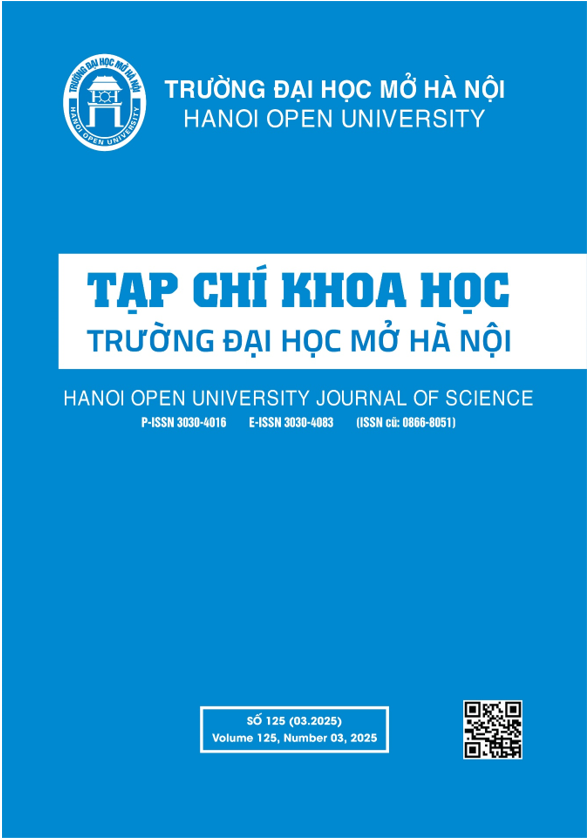CHALLENGES AND SOME SOLUTIONS OF VSTEP WRITING TEST FOR NON – ENGLISH MAJOR STUDENTS
DOI:
https://doi.org/10.59266/houjs.2025.546Từ khóa:
Non-English major students, VSTEP writing test, Hung Yen University of Technology and EducationTóm tắt
Passing the VSTEP exam is a compulsory requirement for non-English major students at universities in Vietnam to be eligible for graduation. However, many students encounter significant challenges in the writing section of the VSTEP test. This study was conducted to investigate the specific difficulties that non-English major students face in the VSTEP writing test, uncover the root causes of these challenges, and suggest possible solutions to help them improve their performance. The research involved distributing questionnaires to 270 non-English major students from the Faculties of Information Technology, Electrical and Electronics Engineering, Mechanical Engineering, Economics, and Garment Technology and Fashion Design, along with interviews with five teachers from the Faculty of Foreign Languages at Hung Yen University of Technology and Education (UTEHY). The results indicate that students struggle with writing self-study due to a lack of practice resources, difficulties in managing study time, and unfamiliarity with the test format. Based on these findings, several solutions have been recommended to assist students in passing the writing section more effectively, such as building a stronger vocabulary, practicing grammar skills, and maintaining a calm and confident mindset during the test.
Tài liệu tham khảo
[1]. Akbari, A. (2016). Challenges in English language proficiency: Barriers in vocabulary, grammar, and test preparation. International Journal of Applied Linguistics, 22(4), 50-65.
[2]. Chen, J., & He, L. (2019). Exploring the difficulties faced by non-English majors in standardized language proficiency tests. Journal of Educational Psychology, 23(2), 201-214.
[3]. Hoang, P. T. (2023). Analyzing the Writing Components of the VSTEP Test: Implications for Teaching. Vietnam Journal of Linguistics, 11(1), 15-30.
[4]. Lan, P. Q. (2021). Examining test anxiety and its impact on performance in standardized English exams. Journal of Language and Education, 14(3), 102-113.
[5]. Le, D. K. (2018). Comparative Study of VSTEP Writing Test and IELTS Writing Test. Language and Education, 32(3), 250-265.
[6]. Nguyen, H. L. (2021). Student Perceptions of VSTEP Writing Test: A Qualitative Study. Journal of Language and Education, 9(2), 90-105.
[7]. Nguyen, T. L. (2020). The impact of VSTEP standards on English teaching and learning: A case study at Vietnam National University. Journal of English Language Education and Research, 15(2), 113-125.
[8]. Nguyen, T. M. H. (2021). Cognitive processes in VSTEP candidates: An analysis of English proficiency in speaking and writing tests. Journal of Language Testing and Assessment, 9(3), 77-89.
[9]. Nguyen, T. N., & Pham, L. V. (2018). The role of vocabulary and grammar knowledge in VSTEP writing performance. Journal of English Studies, 6(2), 88-98.
[10]. Pham, L. N. (2021). Challenges Faced by Students in VSTEP Writing Test Preparation. Asian EFL Journal, 23(1), 45-60.
[11]. Sokip. (2020). The importance of teachers, curriculum, and materials in language skill development. Asian Journal of Educational Development, 13(1), 59-74.
[12]. Vu, T. A. (2022). The Role of Feedback in Improving VSTEP Writing Performance. Journal of English Language Teaching, 10(2), 78-89.
